Top 7 Features and Benefits of a Hospital Management System
Several hospital management system software components have specialized functions, such as communication systems, policy and procedure systems, information systems for radiology, laboratory information systems, and picture archiving. Traditional hospitals have become smart due to this change in the hospital management system.
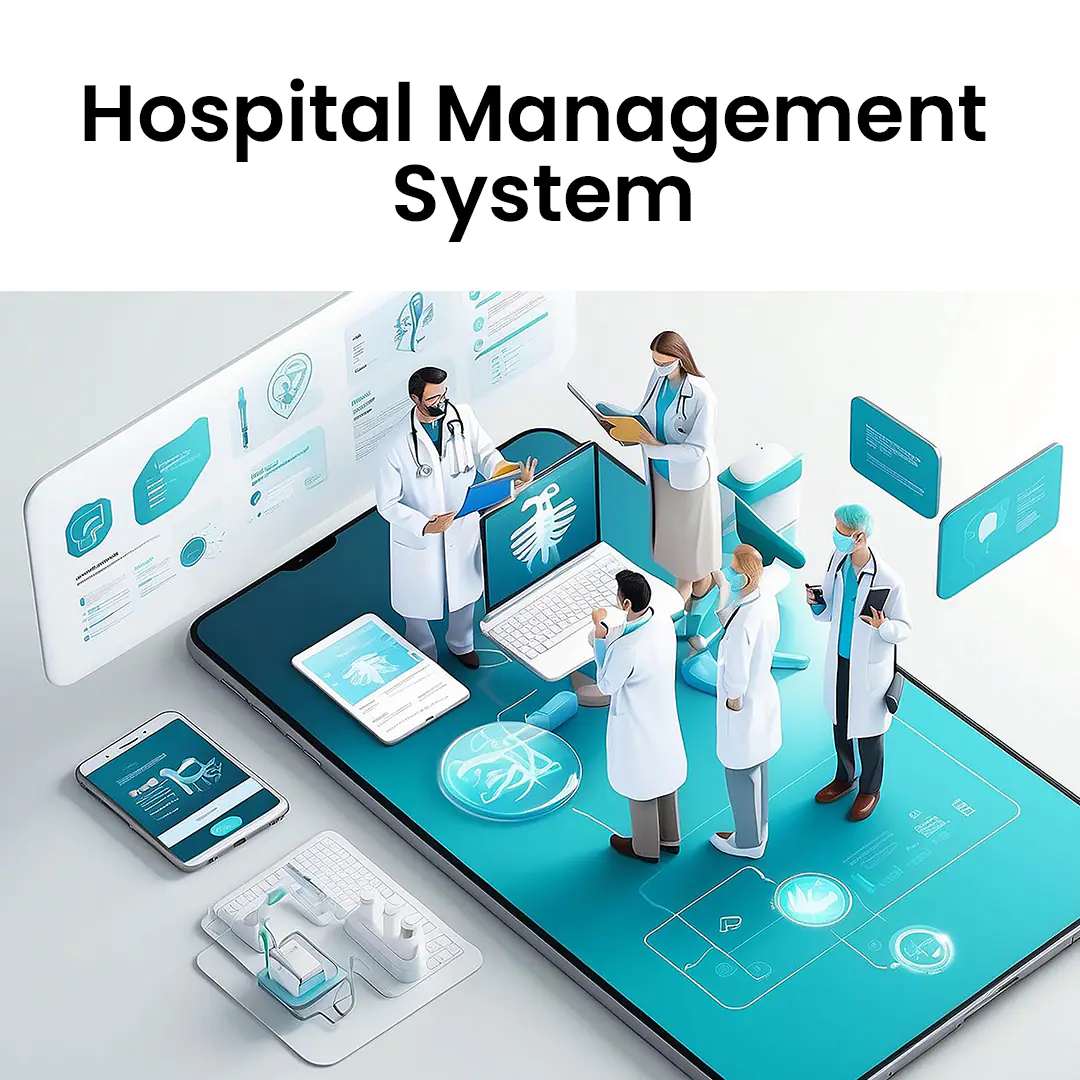
Transform Hospital Management: Our Healthcare Services Address Key Challenges, Boosting Efficiency & Data Accuracy
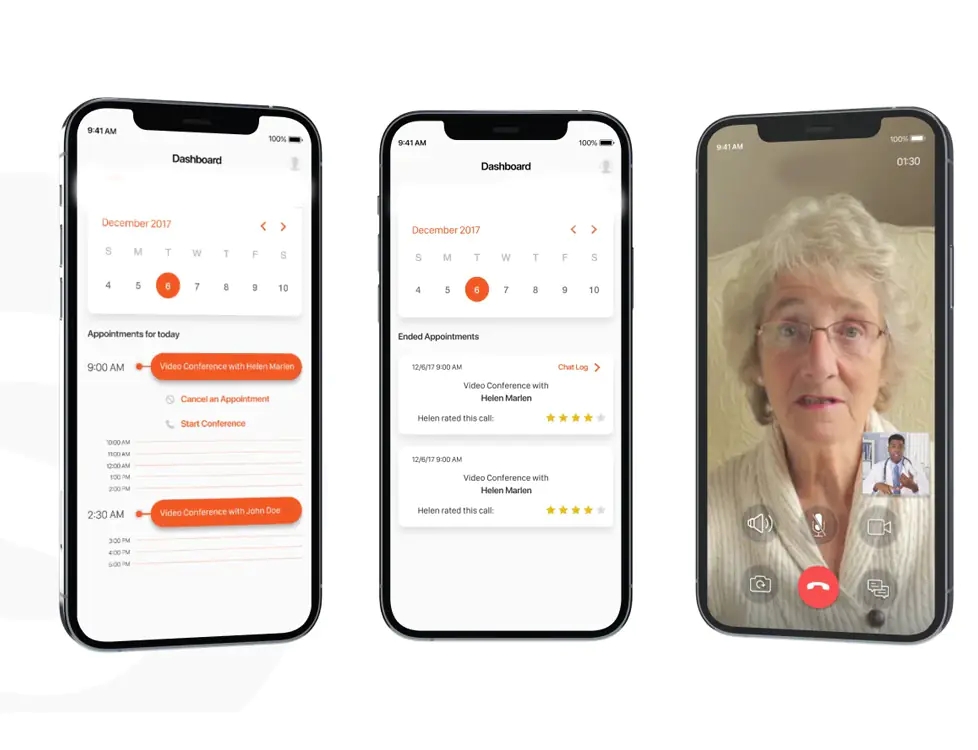
“Doctors spend half their time on paperwork, detracting from patient care. Automation offers a solution, reducing administrative burdens and optimizing hospital operations for improved efficiency and focus on patient needs.”– FPM
Hospital Management System Overview
An information management system is a hospital management system. Clinicians and other staff members have fewer limitations in their work, and the better a hospital is at managing data and information. Hospital management systems, hospital information management systems, and hospital management information systems are some of the terms used to describe it, but they all mean the same thing: a network or highway that allows data to be shared between various teams and solutions to ensure accurate data is provided as soon as possible to enable the best care possible.
The hospital management system manages tasks like:
- Report Management
- Patient Management
- Appointments
- Scheduling Surgery
Modules of Hospital Management System
According to a patient’s journey, we have covered the 5 primary hospital management system modules below.
- Appointment Management: Besides being time-consuming, manually scheduling appointments raises the possibility of human error. 68% of patients said they would rather make, change, or cancel appointments online. You can add a scheduling option to your hospital management system module so patients can conveniently make an appointment. The hospital’s healthcare management system software will match the patient’s ailment to the physician’s specialty once the patient has scheduled an appointment. The next available specialist or the one they choose will subsequently be assigned to them. Additionally, it instantly refreshes the available slots to prevent confusion at the hospital.
- Patient Management: The demands of the inpatient and outpatient departments are met by the healthcare management system’s patient management system features module. It records and keeps track of their medical history, necessary treatments, past visit information, forthcoming appointments, reports, insurance information, and more. Patient management software also creates unique admission numbers for each patient to make managing admissions, discharges, and transfers easier. It also creates an extensive discharge summary. Simultaneously, it captures and creates relevant paperwork, such as consent forms for electronic signature. A health care management system frees up medical professionals and personnel to concentrate more on patient care than paperwork.
- Electronic Medical Records: It is a centralized software program that oversees vital patient data, including prescription drugs, medical histories, physician notes, and more. This system, customized to meet a particular hospital’s requirements, is used for managing electronic medical records. Medical record management software, such as electronic health records, is interchangeably referred to as EMR. However, compared to the former, the latter is more extensive and profound.
- Analytics & Reports: To aid in future decision-making, this module provides analytical tools for identifying and analyzing hospital data. It can be used for trend monitoring, performance analysis, and data representation. It does this mission by identifying areas in need of improvement, optimizing resources, and empowering hospital administration to make valid decisions.
- Supply Management: It is not feasible for a hospital to run out of medical supplies. Profound consequences may arise from forgetting to take the medication or from a small delay in refilling it. The HMS’s supply management module monitors the availability of medical supplies. It makes it easy for you to determine the minimal number of supplies needed. It keeps track of the supplier information, quantity consumed, and purchase date. In this manner, you can estimate or forecast the subsequent buy and place a reorder before the product runs out.
Hospital Management System: Key Benefits
Using advanced technology such as healthcare management solutions allow hospitals and healthcare institutions to streamline their processes. The hospital management systems primary benefits are listed below.
- Improve Data Security: Experts have emphasized and reaffirmed that hospitals with manual systems are more susceptible to data breaches and theft than those with automated systems. Every piece of data is protected from unwanted access by a comprehensive hospital management system. But it’s also crucial that you use a cutting-edge system with centralized controls rather than a stand-alone homemade system. Error is impossible when everything is managed by an access-controlled system where information availability is based on user rights. High-quality management systems are being installed in health clinics, hospitals, trauma centers, rehabilitation facilities, and assisted living facilities for this reason.
- Better Revenue Management: A hospital needs a lot of money to operate, and revenue management is essential because it cannot be tracked using outdated manual procedures. Effectively addressing the goal can be achieved with the automation of hospital management system that is customized to meet business needs. It provides quick, precise transactional and management reports that provide a quick sense of the state of the company. Less resources are needed to manage operations when systems and procedures are automated. As a result, a quicker Break-Even Point and better ROI are possible.
- Nullify Errors & Track Overall Details: Hospital management is a challenging endeavor, and errors can happen. In this situation, the likelihood of errors and mistakes is increased. The easiest way to eliminate this is to use an automated hospital management system, which virtually eliminates any error and helps you stay out of regulatory issues and comply with regulations—two of the biggest disadvantages associated with hospitals and medical facilities.
- Improved Billing: By automating processes like processing claims and verifying insurance, the hospital management system can increase billing accuracy. Maximizing patient and insurance income collection can help hospitals. These benefits for billing procedures arise with the deployment of a hospital management system.
Burdened by Regulatory Complexities? Our Services Simplify Compliance, Ensuring Your Hospital Meets all Standards
7 Features of Hospital Management System
Hospital management software features streamline patient care, automates administrative tasks, and enhances communication among medical staff. It ensures efficient healthcare delivery, improves workflow, and supports better patient outcomes through integrated and seamless management solutions.
 1. Pharmacy & Inventory Management
1. Pharmacy & Inventory Management
Running a medical supply store requires constant attention to detail and strict adherence to accepted rules and guidelines. Examples of these include remembering when accessible medications expire and interpreting prescriptions from doctors. Batch tracking, drug billing blockages, GST, customer interactions, sharing of notifications for medications/drugs about to expire, over/low supply, and other issues are all handled by the pharmacy management system.
Supply chain management integrated with a well-designed hospital management system enables real-time tracking of inventory, indents, buy transactions, inventories needed for overtime, suppliers, payments, and other information. It helps to reduce waste and operating expenses while giving accurate real-time inventory data and cutting inventory expenditures.
2. Telemedicine
The delivery of healthcare services is changing, and telemedicine is one of the ways that this is happening to hospital administration systems. By enabling seamless care assurance, personalizing schedules, and generating income regardless of time or location, it has completely changed the way that healthcare services are traditionally provided.
This allows patients to receive better follow-up visits in multiple locations without having to physically visit a hospital or doctor’s office. Efficient remote healthcare could be enhanced through telemedicine and linked medical devices.
3. Inpatient Registration & Billing
Complete patient demographics, including name, age, contact information, and so on, are provided to you when you use the hospital management system features. Consequently, it is simpler to onboard a new patient whenever one arrives with difficulties. Beyond the previously listed advantages, the ease with which beds can be assigned online is a testament to the processes involved. Users with permission can quickly assign beds based on patient requirements and financial constraints. It functions as a one-stop shop for the smooth release of data, billing information, and discharge summaries throughout the discharge process.
The future-ready system simplifies every aspect of the business, including the price of the rooms and the surgery. MIS reports across departments are much better off being digitalized than done by hand. It still supports the automatic alerting system for past-due payments. When patients voluntarily provide insurance companies with their claim facts, it also signifies their empowerment.
4. Digital Imaging & Vital Tracking Management
Rapid simplification of the diagnostic and imaging processes is possible. It comprehends every kind of lab report. Strong support is made available to manage appointments, billing, and diagnostic results for specialties ranging from radiology to pathology. Vital management is more important; therefore, a hospital management system boosts its management capacity and makes security easier.
With the help of this dependable hospital management system function, handling sample collection, sample tracking, and test result distribution is simple.
5. Claims Management
In a hospital or clinic, claims settlement is an essential task that needs to be streamlined using a robust system. The integration of claims management functionalities into hospital management systems has advanced significantly in many cases. The complete claim management documentation process is automated by this functionality.
It makes it possible for authorized users to attain efficiency and accuracy, which is crucial for lowering errors and expenses.
6. Mobile Accessibility
Mobile-friendly hospital management administration software gives clinicians access to patient records, scheduling, and pertinent medical information through their mobile devices. This feature is a result of their ability to educate and communicate with each other even before they arrive at a hospital.
With the convenience of managing appointments and viewing patient information on their smartphones or tablets, they can make sure that patient treatment is processed efficiently.
7. Secure Messaging
Doctors can safely communicate with nursing staff, other medical professionals, and coworkers by using secure messaging services. This ensures the security of private patient information while facilitating effective teamwork. In a safe setting, physicians can discuss cases, provide updates, and exchange vital information, improving the standard of care for their patients.
Cost to Develop Hospital Management System Software
How and how much to build a hospital management system depends on several factors. Features of the hospital’s information management system:
- The development team size
- Software and technology stack integrations
- Development model
The project’s needs will mostly determine whether to integrate innovative technologies like artificial intelligence in healthcare. Moreover, the program’s application size would determine how much the hospital management system software cost would increase throughout a wide range. Usually, the development of a healthcare management system costs between $80000 and $500000 USD. However, it could vary based on several factors, such as third-party integrations, functionality, and complexity. Additionally, hospital software comes in a range of formats, each with special benefits. Therefore, the type of software you choose for your business will also have an impact on the cost of a software system.
Refer to Our Podcast for Further Details:
Reshaping Patient Engagement and Remote Patient Monitoring
Facing Data Inaccuracies? Our Advanced Services Ensure Precise, Reliable Patient Records & Operational Efficiency
Hospital Management Software Development with NextGen Invent
At NextGen Invent, we specialize in developing cutting-edge hospital management systems tailored to meet the unique needs of the healthcare industry. Our approach is systematic and collaborative, ensuring that our solutions exceed industry expectations. Our team, comprising seasoned software developers, healthcare professionals, and project managers, works closely with clients to fully understand their needs and objectives. By identifying key requirements and potential challenges, we craft customized digital healthcare app development services that address each client’s specific situation. With our extensive experience, we excel at finding innovative solutions in unexpected places and implementing them successfully.
Discover how our healthcare app development solutions can digitally transform your IT in hospital management. Contact us today to learn more about our services and how we can assist you in achieving your goals.
Related Blogs
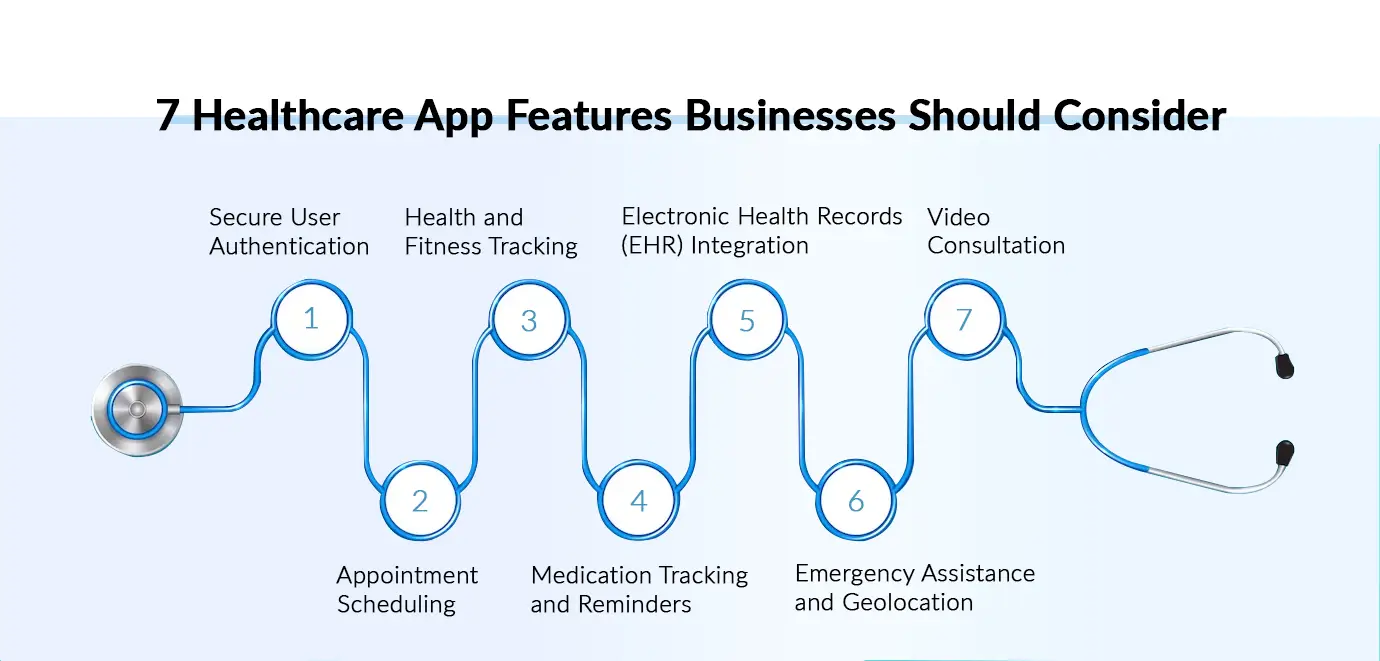
Healthcare App Features that Businesses Must Consider
Healthcare applications play a crucial role in enhancing healthcare delivery, promoting patient engagement, and improving overall wellness. It is essential to ensure that these applications comply with relevant regulatory standards and data privacy guidelines to safeguard confidentiality.
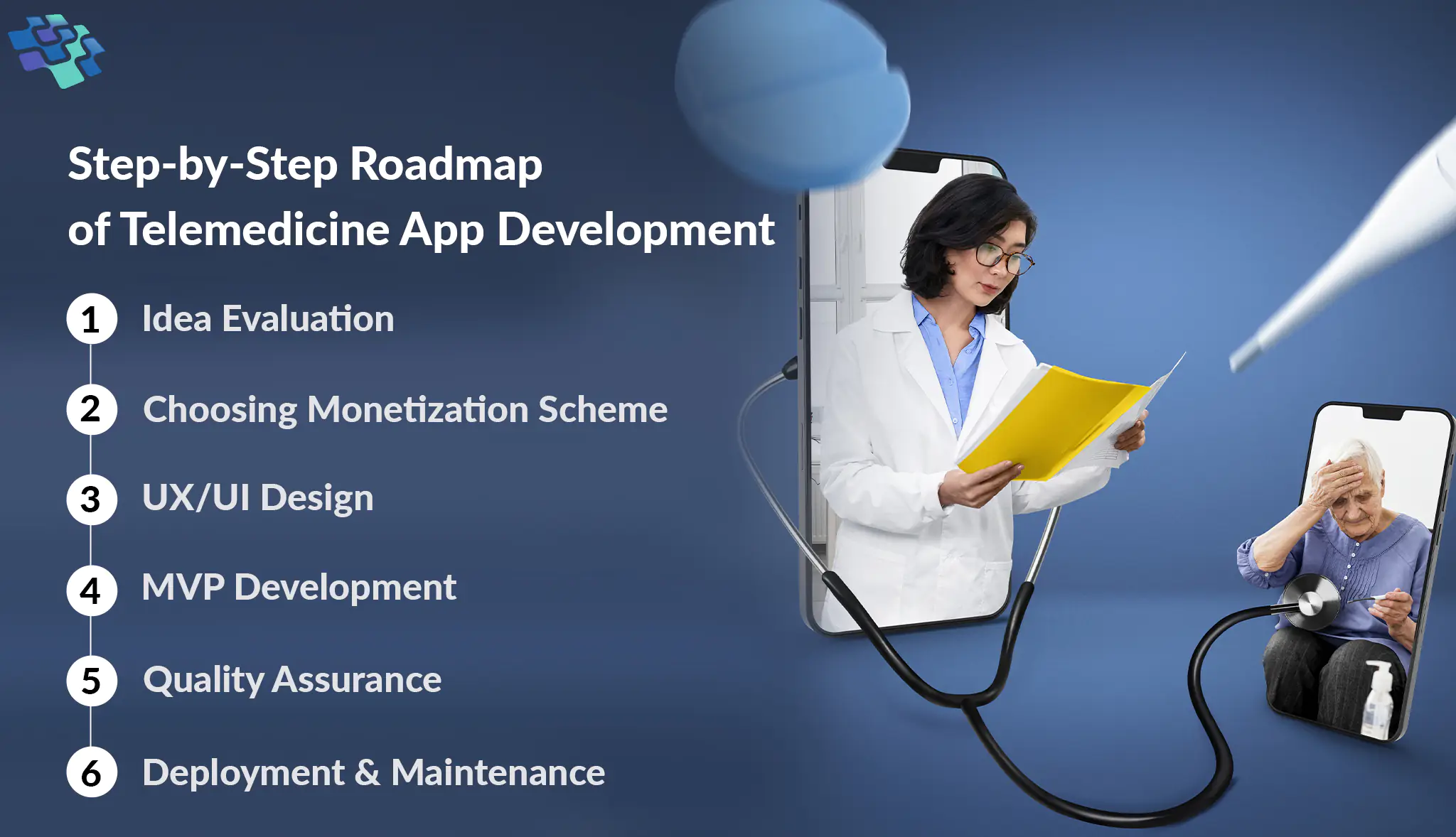
Everything Businesses Need to Know About Telemedicine App Development
There will soon be a severe physician shortage in the United States. There is projected to be a 46,900–121,900 physician shortage by 2032. According to estimates, there are roughly 15 psychiatrists and 30 psychologists for every 100,000 persons.
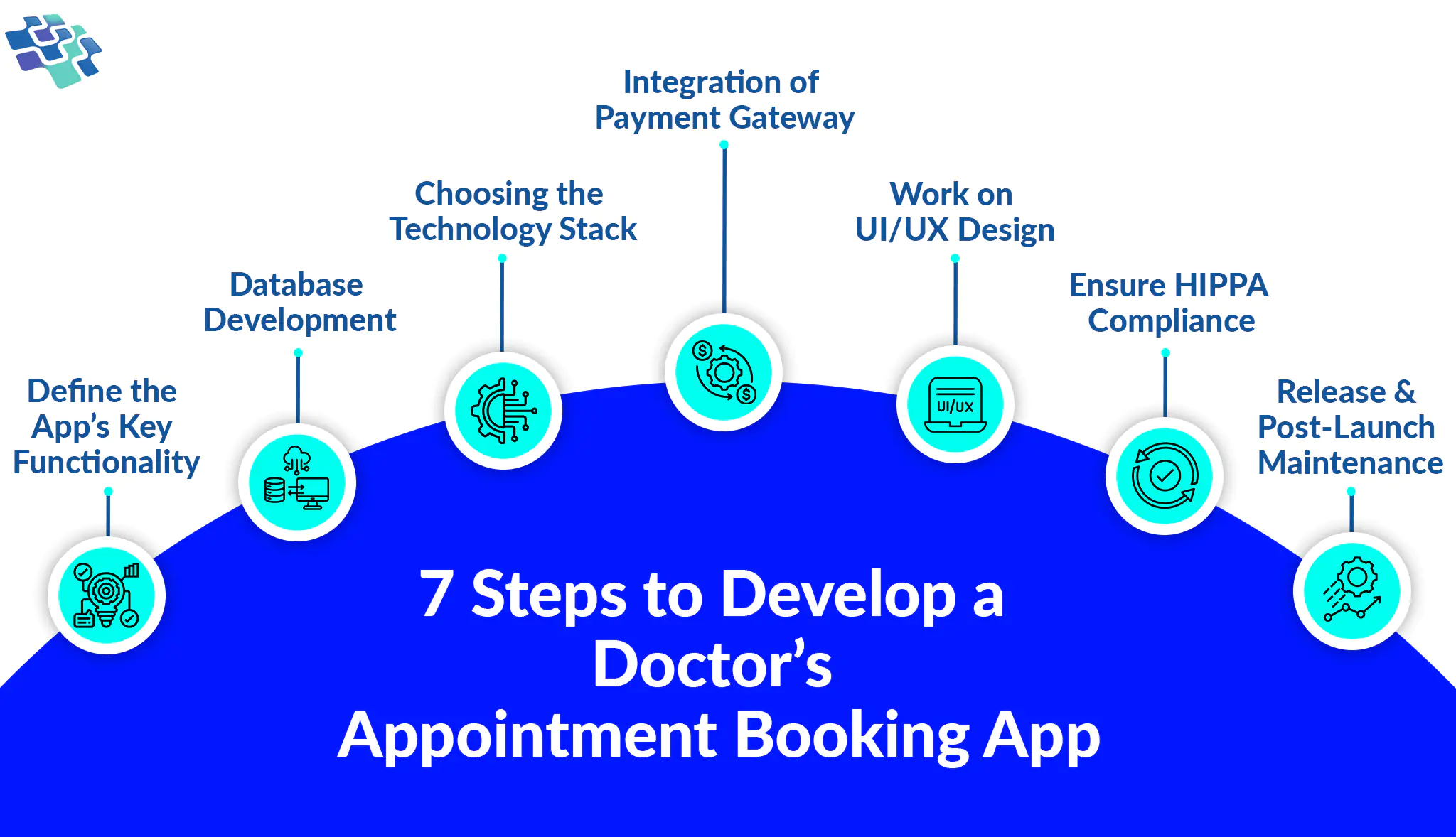
How to Develop a Doctor Appointment App in 2024?
When trying to make an appointment for a medical visit, have you ever found that you have to wait weeks for the next open time slot? Everyone has experienced that. Mobile apps, however, have completely changed how we make appointments since the invention of technology.
Stay In the Know
Get Latest updates and industry insights every month.
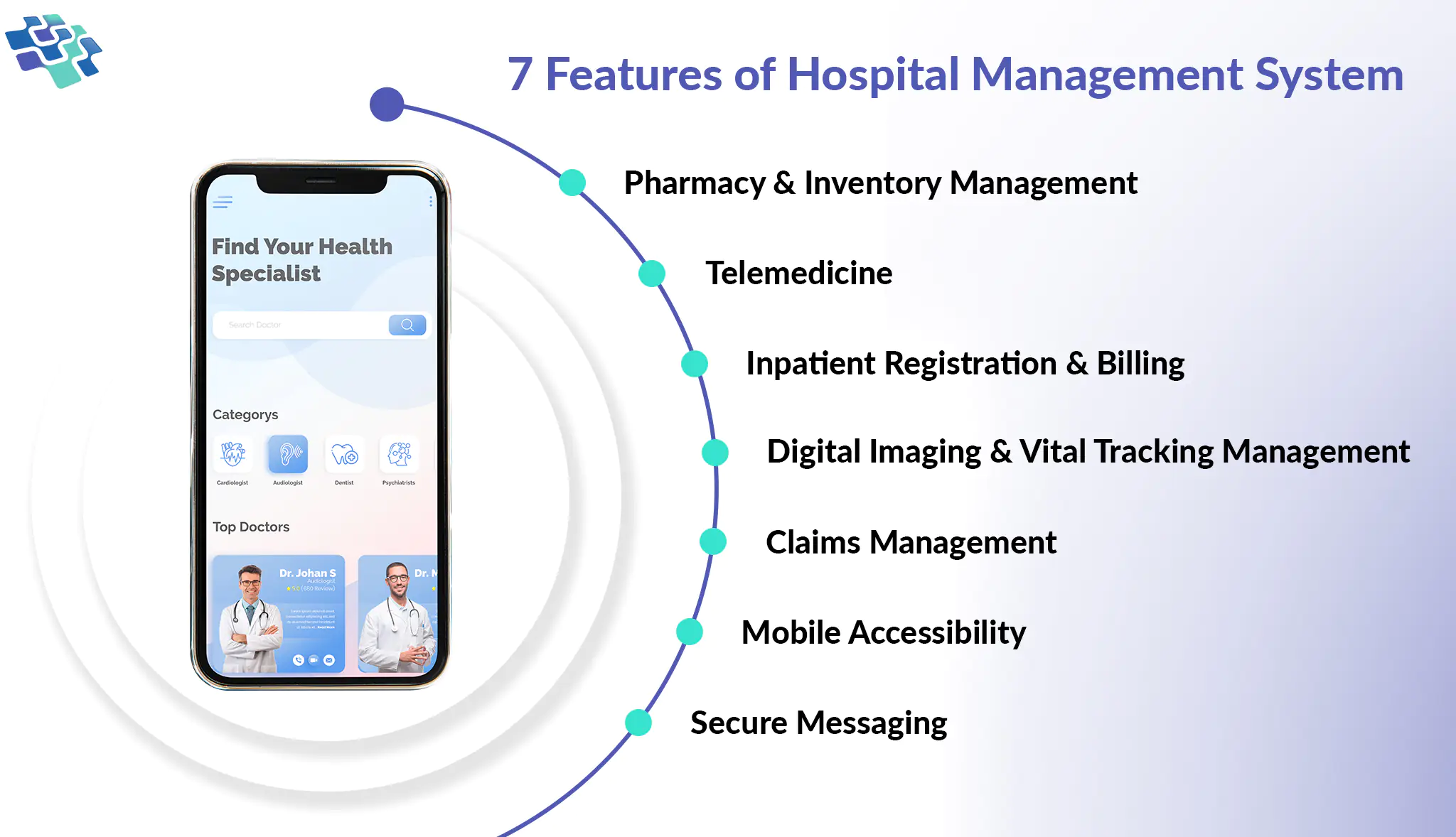 1. Pharmacy & Inventory Management
1. Pharmacy & Inventory Management